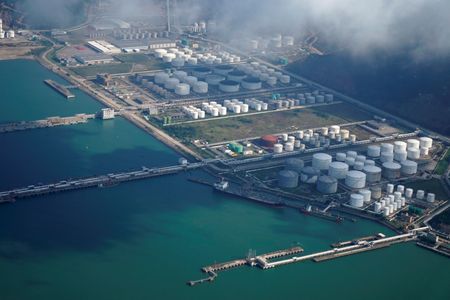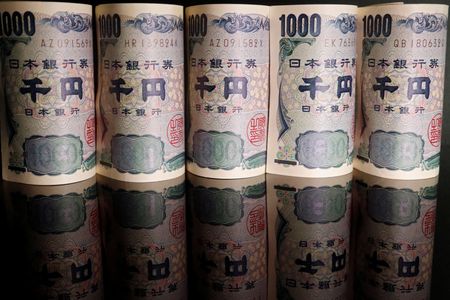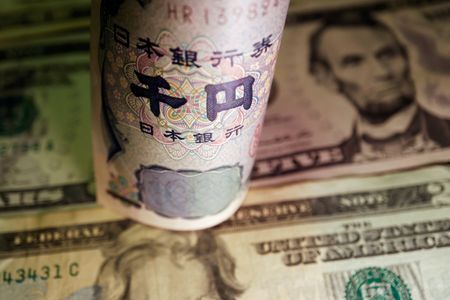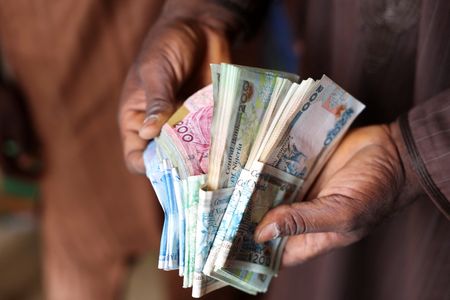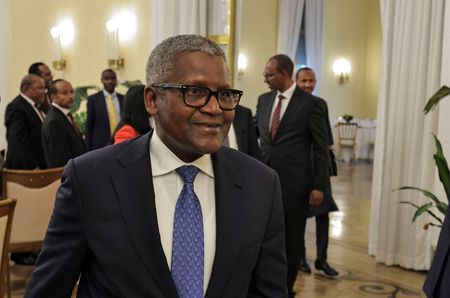By Duncan Miriri and Marc Jones
NAIROBI (Reuters) -Some of Senegal’s international bonds hit record lows on Wednesday as lack of progress on a new loan programme with the International Monetary Fund and signs of political infighting fuelled concerns over an impending debt crunch.
Euro- and dollar-denominated debt issued by the West African nation tumbled between 2.5 and 3.0 cents, Tradeweb data showed, with the 2031 bond suffering the biggest losses to bid at 68.518 cents.
Bonds maturing in 2031 and beyond traded below the 70 cents on the euro or dollar mark, the threshold below which debt is considered distressed.
The cost of insuring exposure to Senegal’s debt against default through credit default swaps surged to 1,120 basis points this month so far, from 750 basis points at the beginning, LSEG data showed.
The latest losing streak for Senegal’s bonds came after a team of officials from the IMF completed last week’s mission to Dakar without outlining a new support package.
Comments at the weekend from Prime Minister Ousmane Sonko, who said the IMF was pushing for a restructuring of Senegal’s debt which he rejected and labelled “a disgrace” for the country, accelerated the decline.
Jeff Grills, head of emerging markets debt at Aegon Asset Management, said the dispute between the IMF and Senegal had highlighted the precarious situation the government was in.
“While it’s notable that the government wants to honour the commitment, the disagreement with the IMF puts their program at risk and also cuts off any other sources of financing from other multilateral agencies,” said Grills. “The market has sold off as the prospect of a restructuring is now more likely.”
POLITICAL ROW
Investors were also worried about a rift between President Bassirou Diomaye Faye and the political party he belongs to over the management of the ruling coalition.
Faye and Sonko have dismissed long-running rumours of a power struggle between them, but conflicting statements in recent days about the leadership of the coalition point to clear differences.
Faye said on Tuesday he was naming former Prime Minister Aminata Toure, a close ally, to lead the coalition of parties that supported his presidential campaign.
But the ruling Pastef party, led by Sonko, said it would continue to recognise Aissatou Mbodj, a close ally of Sonko.
Analysts warn the dispute could weaken the government’s negotiating position with the IMF for a new support program.
Senegalese bonds have been under heavy pressure since the government revealed billions of dollars’ worth of previously undisclosed debt last year that have pushed its debt-to-GDP ratio to over 130%.
“If the necessary austerity measures are considered too difficult to implement, restructuring may be required sooner,” South Africa’s RMB bank said in a note to clients.
(Reporting by Duncan Miriri and Marc Jones, additional reporting by Libby George, Portia Crowe and Anait Miridzhanian; editing by Toby Chopra and Mark Heinrich)


